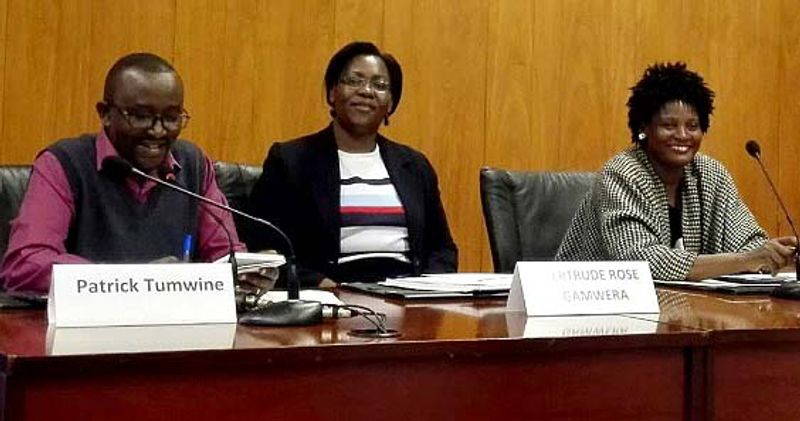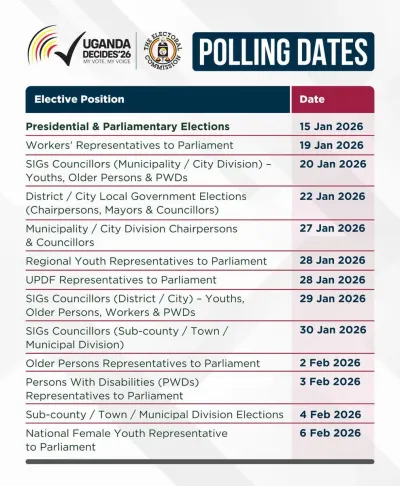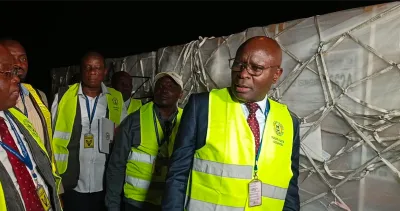

Patrick Tumwine moderated discussion on role of Local Council Courts. Rose Gamwera (centre) from ULGA and Namubiru presented perspectives on the importance and challenges of LC courts
Sylvia Namubiru recently found herself summoned as a witness by LC I office of her village, to help resolve a dispute between her neighbour and another party who had bought land neighbouring her plot.
As the LC officials and other interested parties went about verifying facts of the disputed land, Namubiru detected something was amiss; none of the members of the council was taking notes that would be attached to the file of the case, upon which judgement would be made.
Namubiru cited the absence of a record-keeping culture, prevalent in nearly all local councils, as one of a plethora of omissions and commissions that are committed by ill-equipped local councils to deliver justice while handling land disputes. She pointed out for example that although the mandate of LC 1 Courts in handling land disputes stops at properties valued below UGX2 million, most LCs hardly decline to hear any case.
Thanks to her legal knowledge and experienced from her work with Lapsnet where she’s the Executive Director, Namubiru, is among the very few Ugandans that are aware of the importance of Local Councils as an institution of the judiciary that is charged with handling land disputes.
The importance of LC courts in administering justice was acknowledged by Justice Yorokamu Bamwine, the Principal Judge himself, when in 2015, he observed that 80% of Ugandans use local councils to resolve disputes.
Given the high level of legitimacy that is enjoyed by LCs in Uganda, organisations that care about nurturing democracy and rule of law are beginning to raise the profile of the LC system by ensuring that the lowest administrative unit delivers on its rather wide mandate.
Friedrich Ebert Stiftung (FES), is one of those organisations. FES has teamed up with the Uganda Local Government Association (ULGA), and Legal Aid Services Providers Network, (LAPSNET), in a campaign that is aimed at raising awareness among Ugandans on the importance of LC Courts in resolving land disputes.
But as Gertrude Gamwera, the Secretary General of ULGA, observed, raising the profile of LC courts is an enormous task because of the many years of a largely non-functional LC system, politicization of Local councils and lack of support from the central government.
Gamwera noted that LCs enjoy a vast mandate that requires them to be supported by the central government, through provision of office supplies like paper, file cabinets to ensure that the keep vital records.
Local councils derive their judicial power from a number of statutes including the 1995 Constitution Article 126 (2) & 127 and the Local Councils Court Act, 2006 and Regulations, 2007 among others.
But as Gertrude Gamwera, the Secretary General of Uganda Local Governments Association, the umbrella body for all local government institutions, observed, local council members themselves scarcely understand their judicial power.
Coupled with ignorance of the law, Namubiru observed that local councils have often been allowed to preside over injustice, by higher authorities through failure to allocate funds for clerical work as well as other facilities such as offices and filing cabinets to keep records.
“How do you expect LCs to write judgements when they do not have a budget, or even papers to write on!” Namubiru wondered before making rallying call to the government, especially the Law and Order sector to build the capacity of local councils so that they are competent and able to carry out their obligation of deciding cases.
Officials from the Germany organisation revealed their intention to continue to raise awareness about the role of LCs in administering justice that is closest to the people.
In order to counter the absence of literate local leader, Namubiru called for the recruitment of legal assistants – or persons with some basic legal knowledge to guide the executives in legal matters.














Henry Lutaaya
Leave a Comment
Your email address will not be published.